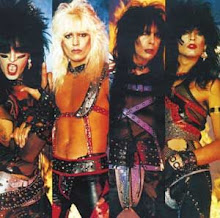Analysis of Quote:
(I am far too AP-literature-exhausted at this point to search through this entire book for a quote to analyze, so here's an analysis of the first paragraph of the book. Hey, I'm still making a good effort, right?)
"Once upon a time and a very good time it was there was a moocow coming down along the road and this moocow that was coming down along the road met a nicens little boy named baby tuckoo... His father told him that story: his father looked at him through a glass: he had a hairy face. He was baby tuckoo. The moocow came down the road where Betty Byrne lived: she sold lemon platt" (Joyce 3).
This quote, not because it's the first one in the book, is actually one of my favorites in the novel. It's not often that you read a college-level novel with childish language and imagery in it, and I really enjoy this unconventional use of juvenile language. Despite the belief of many that children are difficult to understand, I believe this actually helps the reader to understand the book better. When Stephen was a young child, as most children at this age do, he used very literal and matter-of-fact terms to describe what he was seeing, without any figurative language or sophisticated vocabulary like a person such as Stephen with a passion for language would use. He repeats the exact same phrase more than once, for example he says "the moocow coming down the road" three times in just two paragraphs. Although this coming from a young child would typically be viewed as a juvenile attempt to express ideas through speech without the necessary experience with words to make a sentence sound intelligent and clear, I actually viewed this as a foreshadowing to the development of his passion for words and writing poetry. A very common and effective literary device in sophisticated and respected poetry, after all, is repetition. (*Sidenote- you can tell I just spent four hours analyzing the literary devices used in poetry)
Analysis of Symbol/Theme:
Birds and flight
There are many religious allusions throughout the entire novel such as the Bible, Latin phrases used in the Catholic faith, Greek mythology, etc. Stephen Dedalus' name itself is an allusion to the Greek god Daedalus, who designed a Labryinth for King Minos and is imprisoned by the king on the island of Crete, but he is able to craft a set of wings and use them to escape by way of flight. This desire of Daedalus to escape from imprisonment in Crete parallels the desire of Stephen to escape from his artistic and expressive imprisonment in Ireland, the home of his family and the Catholic church. At the end of the novel, Stephen sees birds flying freely in the sky, and this symbolizes his finally successful attempt at breaking away from the constraints of the church, the state, and his family to pursue his lifelong passion for art, despite the difficulty of the decision to leave everything he had ever known in life, especially his own family.
Reflection:
This novel was not the easiest one to get through, as we were all warned about before we started reading it in class, but I found that I was actually able to understand it fairly well after discussing it, but not just from reading it. Ultimately, I would say that I enjoyed the book mostly because I liked the uncommon structure used by Joyce (beginning it with Stephen as a young child and changing the style and language throughout the novel to reflect Stephen's changing personality as he ages and develops as an artist and a person). It was definitely no Heart of Darkness, as even though I didn't completely understand it and it was often frustrating to read on my own, I ended up coming to enjoy it the more I thought about it and listened to other people's reflections and interpretations.


2 comments:
I agree with what you said about the beginning of the book. I mean, reading it the first time, I was baffled at what it could possibly mean and thought it was a joke. But after Klimas told us that Stephen was a child at the time and would be developing throughout the novel, I understood it more. I liked Joyce's use of juvenile language because it not only gave us something to compare the end of the novel to, but it also introduced his love of language and emotions early on.
Hello. This post is likeable, and your blog is very interesting, congratulations :-). I will add in my blogroll =). If possible gives a last there on my blog, it is about the TV de LCD, I hope you enjoy. The address is http://tv-lcd.blogspot.com. A hug.
Post a Comment